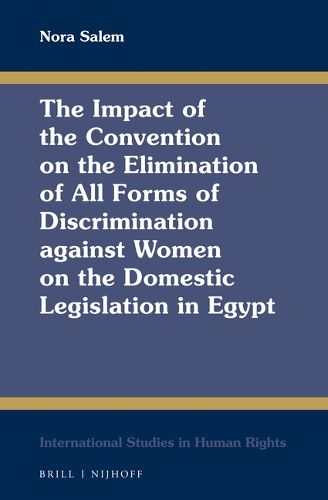Readings Newsletter
Become a Readings Member to make your shopping experience even easier.
Sign in or sign up for free!
You’re not far away from qualifying for FREE standard shipping within Australia
You’ve qualified for FREE standard shipping within Australia
The cart is loading…






By virtue of ratifying the Women’s Convention, Egypt is internationally obliged to eliminate gender discrimination in its domestic legislation. Yet, women in Egypt face various forms of discrimination. This may legally be justified through Sharia-based reservations, which many Muslim-majority countries enter to human rights treaties to evade an obligation of implementation where Human Rights run counter to Sharia. This book examines the compatibility of Sharia-based reservations with international law and identifies discrepancies between Sharia and domestic law in order to determine rights Egyptian women are entitled to according to Sharia, and yet denied under Egyptian law. Account is moreover given to Egypt’s implementation efforts in the non-reserved areas of law. To this end, Egypt’s 2014 Constitution and four areas of statutory law are examined as case studies, namely, female genital mutilation; human trafficking; nationality; and labor law.
$9.00 standard shipping within Australia
FREE standard shipping within Australia for orders over $100.00
Express & International shipping calculated at checkout
By virtue of ratifying the Women’s Convention, Egypt is internationally obliged to eliminate gender discrimination in its domestic legislation. Yet, women in Egypt face various forms of discrimination. This may legally be justified through Sharia-based reservations, which many Muslim-majority countries enter to human rights treaties to evade an obligation of implementation where Human Rights run counter to Sharia. This book examines the compatibility of Sharia-based reservations with international law and identifies discrepancies between Sharia and domestic law in order to determine rights Egyptian women are entitled to according to Sharia, and yet denied under Egyptian law. Account is moreover given to Egypt’s implementation efforts in the non-reserved areas of law. To this end, Egypt’s 2014 Constitution and four areas of statutory law are examined as case studies, namely, female genital mutilation; human trafficking; nationality; and labor law.